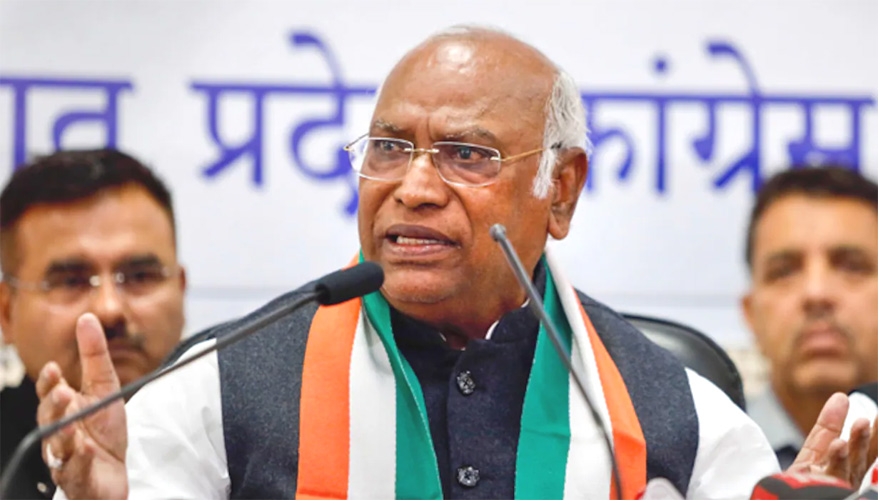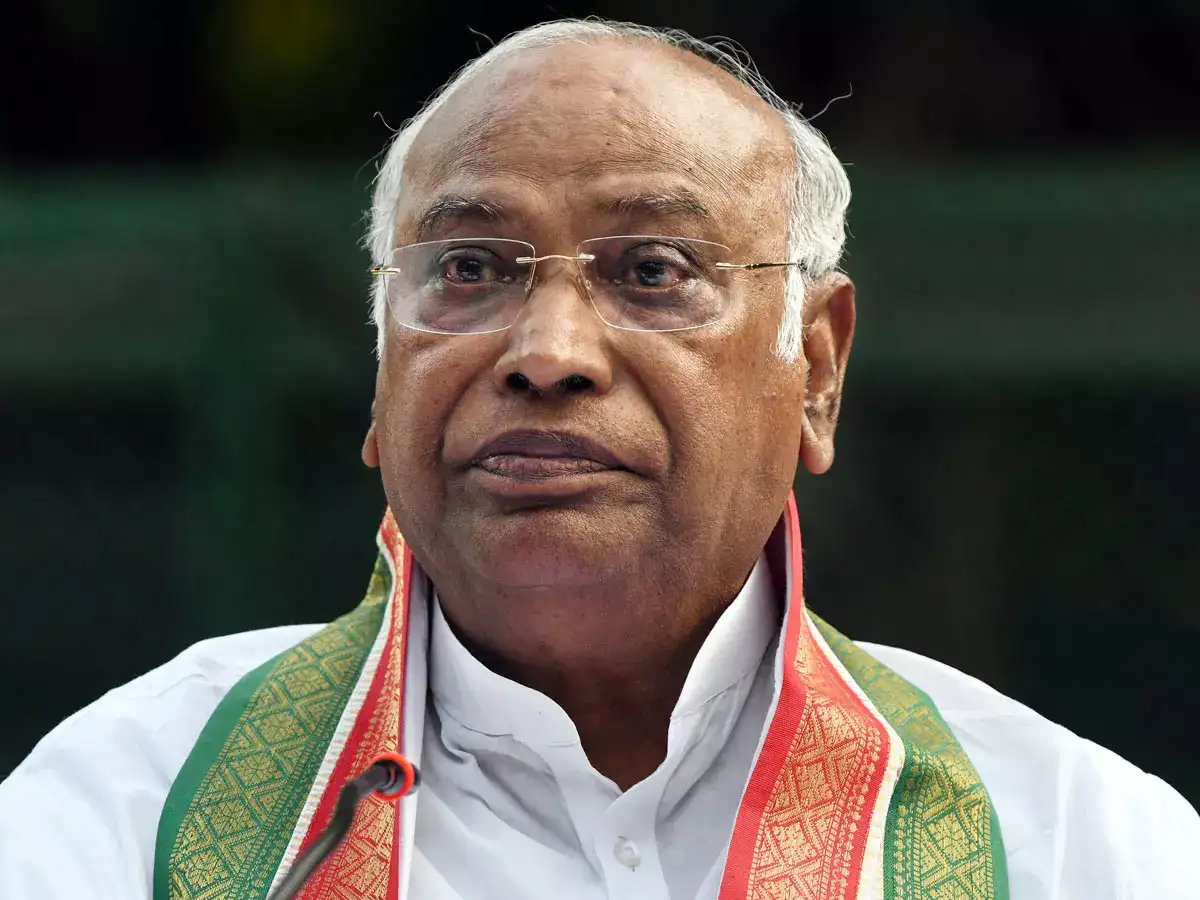Congress President Mallikarjun Kharge is at the centre of political headlines, steering the opposition’s stance with a blend of seasoned resilience and emotional candour seldom seen in recent Indian politics. In a week marked by upheaval—Vice President Jagdeep Dhankhar’s sudden resignation, open rifts in Karnataka’s leadership debates, and assertive parliamentary duels—Kharge’s every word is reverberating across India’s political spectrum.
Internal dissent within the Congress party has been mounting as Mallikarjun Kharge navigates complex power dynamics, especially with persistent speculation over a leadership shuffle in Karnataka. Even as Kharge maintains that any decision “rests with the party high command,” his diplomatic silence has only intensified the buzz about a possible transition from the current Chief Minister Siddaramaiah to Deputy CM D.K. Shivakumar. Such uncertainty has left both legislators and party workers in Karnataka anxious, fearing that abrupt changes could either rejuvenate or destabilize the state government at a critical juncture.
Outside the corridors of party intrigue, Kharge has continued to assert himself in Parliament. He is set to open the Congress attack in the Rajya Sabha debate on the controversial “Operation Sindoor,” which is expected to be a pitched battle with BJP benches over both procedural transparency and accountability. Kharge’s leadership in these crucial debates demonstrates his ongoing relevance and authority in shaping the opposition’s legislative agenda.
The national spotlight recently shone intensely on Kharge when he voiced deep skepticism regarding the sudden resignation of Vice President Jagdeep Dhankhar. While publicly stating he had “no information on the actual reason,” Kharge was forthright in recalling that Dhankhar often sided with the government, rarely allowing the opposition’s voice on key issues in the Rajya Sabha. His comments, interpreted by many as a veiled critique of institutional partiality, have further fueled speculation about the real reasons for Dhankhar’s departure.
Kharge’s actions extend beyond power politics and parliamentary confrontations. He has become a visible voice in citizen protests and opposition demonstrations, from leading MPs against the revision of voter lists in Bihar to advocating for the restoration of Jammu & Kashmir’s statehood. This activism reflects his commitment to not just party politics but broader democratic principles, resonating both within the Congress and among regional coalition partners.
In the midst of these public and political battles, Kharge’s reflective moments have struck a personal chord. His public acknowledgment of the disappointment at being passed over for Karnataka’s chief ministership in 1999 has been widely discussed. Kharge has articulated that, despite his tireless efforts and leadership during the election victory, ultimate power went to a newcomer. This rare display of vulnerability has evoked empathy from party workers, while also reopening questions about caste and loyalty in Indian political promotions.
As the monsoon session of Parliament intensifies and political equations continue to shift, Mallikarjun Kharge stands at a pivotal crossroads. He must balance internal discipline with strategic opposition, personal grievances with party goals, and regional interests with the broader national agenda. The coming weeks will likely prove decisive—not just for Kharge’s political stature, but for the ideological direction and organizational stability of the Congress party itself.

1. Unraveling the Dhankhar Resignation: Kharge’s Veiled Scepticism
The abrupt resignation of Vice President Jagdeep Dhankhar stunned the nation last week. When confronted by the press in Vijayapura, Karnataka, Mallikarjun Kharge chose both caution and candor, stating he had “no information on the actual reason” behind the exit, emphasizing that the explanation lay “between him and Prime Minister Narendra Modi.” Despite his diplomatic facade, Kharge didn’t hide his discontent, recalling that Dhankhar consistently sided with the government and constrained the opposition’s ability to raise key issues. His pointed remark, “He was always on the government’s side,” delivered at a public event, was a subtle indictment of institutional partiality that, according to many Congress leaders, marked Dhankhar’s tenure in the Rajya Sabha.
The resignation has become a flashpoint for opposition suspicions, particularly amidst speculation that Dhankhar may have been sidelined for showing rare independence on farm issues—a theory Kharge refused to directly validate but allowed to linger in public discourse.
2. Karnataka in Turmoil: Will Kharge Greenlight a Leadership Change?
The Congress-ruled Karnataka government is witnessing mounting speculation over a possible leadership reshuffle. With party general secretary Randeep Singh Surjewala’s recent visit to Bengaluru, buzz intensified that Deputy Chief Minister D.K. Shivakumar could succeed Siddaramaiah as Chief Minister within months. Hints from senior legislators bolster the narrative—one MLA suggested “revolutionary” changes after September.
Kharge, ever the seasoned tactician, neither confirmed nor denied these rumors. Instead, he made it clear, “These decisions rest with the party high command.” His approach has kept the suspense alive, but the unrest within the Karnataka congress reflects the larger challenge of balancing warring factions and ambitions within state units—a legacy Kharge, a Karnataka stalwart himself, understands better than most.
Amid these undercurrents, Siddaramaiah and Shivakumar have both traveled to Delhi for meetings with Kharge and Congress leadership, signaling that any final word will require the national president’s seal of approval.
3. Parliament Fireworks: The “Operation Sindoor” Showdown
Kharge’s parliamentary presence remains combative and central. As Congress chief and Leader of the Opposition in Rajya Sabha, he is set to open the floor for the party’s stance on the government’s controversial “Operation Sindoor” initiative. In fiercely-contested recent debates, Kharge’s exchanges with BJP chief JP Nadda have highlighted the deepening partisan divide.
He has also continued to question both government transparency and accountability on national security, economic, and social issues—forcefully challenging any move that, in his view, undermines constitutional values or sidelines marginalized communities.
4. Personal and Political Pain: Kharge’s Emotional Public Reflection
What set Kharge apart this week was not just strategic maneuvering, but an unusually raw and empathetic speech he delivered in Vijayapura. Speaking publicly, Kharge revisited the personal pain of being passed over for the Karnataka Chief Ministership in 1999 despite leading Congress to a decisive win and serving as Leader of the Opposition. “I tried to bring the party to power, but someone who joined [the party] four months ago was made the chief minister. The services I rendered went down the drain,” he admitted, referencing S.M. Krishna’s ascension to the post.
This rare admission of vulnerability has fueled both solidarity and debate. Kharge, a Dalit leader who took the long road from local party worker to national chief, cast his journey in terms of selfless service rather than the pursuit of power, adding: “One must not harbour greed. If you do, you may never get what you desire.” His words resonated deeply with grassroots workers and brought caste dynamics and historical injustices back into the limelight.

5. The Congress Under Kharge: Opposition Activism and National Push
Since assuming Congress’ presidency in 2022, Kharge has presided over a period of resurgence and sustained opposition activism. Under his watch, Congress recorded major electoral gains—forming governments in Himachal Pradesh, Telangana, and Jharkhand—and emerged as a formidable opposition force in the 2024 Lok Sabha elections.
The party under his leadership has actively protested issues ranging from the revision of voter lists in Bihar to the continuing demand for restoring statehood to Jammu & Kashmir. In recent weeks, Congress MPs led by Kharge, Rahul Gandhi, and Priyanka Gandhi have demonstrated outside Parliament, raising slogans against controversial government policies and pushing back against any perceived encroachment on democratic rights or minority protections.
Kharge’s recent challenge to the RSS over remarks on the Preamble—“Try and remove [‘secular’ and ‘socialist’] if you can”—signaled an uncharacteristically confrontational edge, even as he maintained the party’s legacy of constitutionalism.
Looking Ahead: What Will the Coming Months Hold?
Kharge now stands at a crossroads. On one hand, he is expected to open critical debates in Parliament and position Congress as the anchor of a broad, combative opposition front. On the other, he must manage difficult transitions within Congress-ruled states and keep supporters energized amid relentless BJP electoral machinery and internal party dissent.
The leader’s emotional candor about his past political disappointments has humanized him in an environment notorious for posturing and one-upmanship—potentially rejuvenating faith among Congress cadre and the broader opposition. However, his caution regarding current crises makes clear he is a seasoned strategist, navigating the shifting sands of party alliances, parliamentary tactics, and leadership succession.
Summary Table: Mallikarjun Kharge’s Recent Impact
| Event/Topic | Kharge’s Role/Response | Political Outcome |
|---|---|---|
| Dhankhar’s resignation | Veiled skepticism, indirect accusation of bias | Heightened opposition suspicions |
| Karnataka CM leadership buzz | Noncommittal, defers to high command | State unit remains on edge, suspense |
| Parliament sessions | Aggressive opposition, opening Operation Sindoor debates | Ongoing government-opposition standoffs |
| Public reflection on 1999 CM race | Emotional honesty about lost chance | Renewed discourse on caste, merit, loyalty |
| Congress activism | Leads protests, sets tone for opposition | Positions Congress as core anti-BJP voice |


Conclusion
Mallikarjun Kharge’s journey—from unheralded worker to the highest echelons of Indian politics—epitomizes both the turbulence and the promise of contemporary democracy. His past wounds, strategic ambiguities, and open confrontations with authority combine into a leadership style both reflective and robust. As India braces for a volatile monsoon session and possible political storms in major states, all eyes remain on Kharge, the man with five tumultuous turns at the heart of the country’s latest political drama.
Follow: Mallikarjun Kharge
Also Read: Mumbai-Pune Expressway Tragedy: 1 Dead, 18 Injured in Massive 20-Vehicle Pile-Up Near Khopoli

